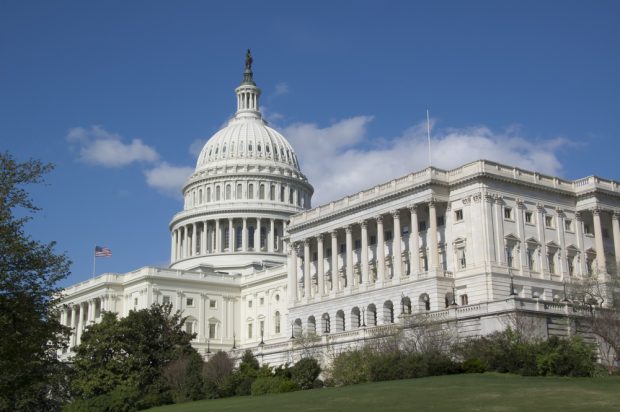 The U.S. Capitol Building.
The U.S. Capitol Building.
The recently-concluded CUNA Governmental Affairs Conference was a microcosm of why Washington doesn't work. The deep political and policy divisions that keep policymakers and lawmakers was on full display.
Acting CFPB Director Mick Mulvaney took great glee in saying he is overjoyed at the prospect that he's keeping Sen. Elizabeth Warren (D-Mass.), a staunch supporter of the agency, up at night.
Recommended For You
"I am the acting director of the CFPB, something that is apparently keeping Elizabeth Warren up late at night, which doesn't bother me at all," Mulvaney said.
But the truth is, the Trump Administration is going to need some Democrats if it wants to change the CFPB.
Mulvaney, who already has a full-time job as director of the Office of Management and Budget, can't continue running the CFPB at the same time.
Trump has yet to nominate a permanent CFPB director. And when he does, Republicans do not have the votes needed to confirm that person on their own.
Trump is going to have to convince some Democrats to support the nominee.
Strangely, Mulvaney's comments came days after he sent Warren a letter asking her to take the high ground in the debate over policy and stop accusing him of acting based on campaign contributions he received when he was a member of the House.
He said he had never thought to accuse Democrats like Warren of supporting the agency's arbitration rule because they received campaign contributions from trial lawyers.
Yeah, right.
If Mulvaney's comments represent the high ground, I shudder to think what his low ground looks like.
GAC week also saw the financial community renew its fight with retailers over data security legislation.
The catalyst was a bipartisan data security bill written by members of the House Financial Services Committee. The bill would hold merchants' feet to the fire and increase their responsibility when breaches occur.
The National Retail Federation shot back that financial institutions can keep a percentage of their breaches secret.
Which of course led the financial community to fire back.
And the battle isn't just between these two sectors.
The Financial Services Committee is known to be more sympathetic to banks and credit unions than the House Energy and Commerce Committee is. The Energy and Commerce Committee is more sympathetic toward retailers.
Battles between congressional committees usually means that no legislation gets passed. Nothing kills legislation faster than intramural spats between committee chairmen.
That's true for data security legislation, which has bogged down in past congresses. And from all indications, the legislation is likely to bog down again unless someone decides to stop lobbing grenades at each other and legislate.
And then, there's the bank-credit union fight.
NCUA Chairman J. Mark McWatters told the credit union officials that it would be nice if they and the bankers buried the hatchet and started working toward pushing issues that unite them rather than divide them.
Yeah, and it would be nice if the U.S. and North Korea could talk to each other and try to avoid a huge nuclear war.
"It's worth considering whether the credit union and community banking communities could benefit from a 'come now and let us reason together' approach to create opportunities for addressing their differences as well as the common challenges facing these essential Main Street financial institutions in an evolving consumer-driven marketplace.," McWatters told those attending the conference. "Working together in good faith with mutual respect for the other reflects strength, not weakness."
But if the bankers and credit unions had a hatchet, they would probably be more likely to try to bury it in each other's backs than in the ground.
McWatters' comments came during the same month when the bankers urged Sen. Orrin Hatch (R-Utah) to hold hearings on credit unions' sacred cow – the tax exemption.
Credit unions may have thought the issue was settled last year when Congress passed the tax overhaul legislation, but Hatch's recent broadside against the tax exemption caused banks and credit unions to return to their battle stations.
And Congress may have to try to pass legislation that corrects some of the problems in the hastily-enacted tax bills so there can be a vehicle that allows the tax exemption issue to flare up again.
Just What We Don't Need
Buried in the depths of the last Continuing Resolution passed to keep the government operating was the creation of a select committee on budget process reform.
Again?
Congress has examined the budget process repeatedly. And each year, the president includes some form of process reform in his budget.
And think tanks have spent years examining the budget process (I know. I spent some time working at one of them.)
There IS a budget process written into law. It can work – it has sometimes in the past.
The process isn't the problem. Congress simply lacks the political will to use ANY process. The House routinely waives rules governing the budget process.
For instance, there are restrictions on the House going home for Spring Recess if it hasn't passed a budget resolution. That rule is always waived.
The process isn't the problem. The problem is the people.
 David Baumann
David Baumann David Baumann is a correspondent-at-large for CU Times. He can be reached at [email protected].
© 2025 ALM Global, LLC, All Rights Reserved. Request academic re-use from www.copyright.com. All other uses, submit a request to [email protected]. For more information visit Asset & Logo Licensing.







